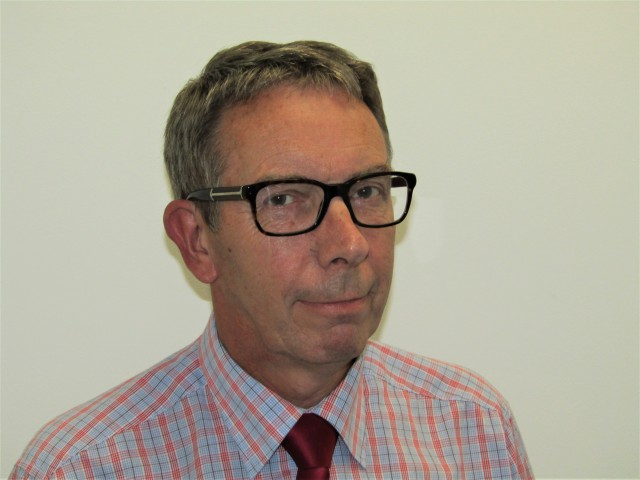BPMA Releases ‘Gender Split’ Survey Results

The BPMA recently carried out a survey amongst members to help better understand how it can help and encourage companies to attract and retain more women engineers.
According to Office of National Statistics data, women currently make up 25.6% of those employed in the manufacturing sector. However, although this figure has grown quite considerably over recent years, at least 50% of the total UK workforce are woman, so there is still some way to go before the world of engineering achieves parity of the sexes.
Against this backdrop, the BPMA distributed questionnaires to a cross-section of its member companies, requesting that they be completed by female employees. Gary Wilde, Technical Services Officer at the BPMA, who orchestrated the survey commented, “The overall engagement was excellent, with the written responses presenting some tremendous insight and detail.” An overview of the key findings is presented below.
First and foremost, it seems that the key drivers for women entering a career in engineering is an interest in knowing how things work and a desire to solve problems and learn new things. Another important factor cited by respondents was having a positive engineering role model and/or a desire to ‘follow in the family footsteps’. So, to some extent the onus is on existing engineers to pass on their excitement and enthusiasm about their job to those around them. A love of maths and science at school was another key indicator for many, which underpins the need for teachers and schools to inform their pupils about the many different engineering careers that are available to them.
When asked about how they got involved in the pumping industry, one respondent, Dounia Bakira of AESSEAL, pointed out that one of the big advantages of engineering is that there is such a wide range of possible careers so the skillsets are highly transferable. She said: “I joined AESSEAL as an Applications Engineer with responsibility for designing, developing, and implementing different solutions for each application. I was attracted by the job description and what it entailed. Now, on a daily-basis I deal with different customer enquiries, analysing the application details and providing a suitable solution to meet each customer’s needs.”
The survey asked how respondents begun their engineering career. Nancy Ashburn of Watson Marlow started working in the pump industry in her gap year while looking for work experience, so she first gained an interest in engineering through the pump sector. Meanwhile, Mandy Bailey was the first female engineering apprentice at Mono Pumps (now NOV) leading the way within the company for other women engineers. She said: “I love my current role in engineering as customer care team leader as I get to help fix customers problems while learning something new every day.”
Many other survey respondents have attributed their love of engineering to the fact that they are continually learning and problem solving. Stephanie Allchurch of Altecnic said: “Working in product development I find that no two days are the same. Products or industry requirements are always evolving and being updated, new ideas or technology is being developed, so each day brings something new to investigate which triggers my interest and keeps me pretty busy.” Jane Delicata of TT Controls agreed. She said: “Every day is different – one day we could be designing a large wastewater system for a municipal project, or helping a client choose which monitoring system to invest in to help them diagnose early maintenance requirements.”

The BPMA survey asked why women already in the industry felt it was important to encourage more women to take up a career in engineering. Everyone who participated in the survey agreed that engineering is still a male-dominated industry. Ablah Williams of Triark Pumps said: “It is important that mindsets are changed to show equality in the workplace.” Women have a lot to offer the sector, as Stephanie pointed out: “Women bring greater diversity. Take, for example, a working group allocated to a specific project, a more diverse group of engineers made up of different age ranges and genders will generally look at a wider scope as each person will bring their own values and attributes, which can only generate a better outcome.” Dounia agreed, saying that diversity is important in the engineering sector because it results in problems being looked at from different angles. She said: “Having women in engineering helps solve more problems and increases productivity, which is vital for economic growth and financial stability. Diversity within any business builds momentum, creates a positive culture and boosts development.”
So, what can women entering the sector expect? Sinead Codd of Sulzer Pumps said: “The attitude towards female engineers has changed dramatically in the last decade. And female engineers are having a big impact in the workplace. However, there is still a significant imbalance in the male/female ratio, so all existing female engineers need to seize every opportunity to promote engineering as a rewarding career to young girls.”
In summary, one of the respondents to the survey said that women need to be encouraged to do what they enjoy and they need to know that their opinion counts and that they won’t be treated differently to their male colleagues. It is important that the pump industry and wider engineering sector lets women know that they can make a difference. Although the sector is still very male dominated, women have much to offer and there is plenty of room for skilled, trained professionals, regardless of gender.
Gary Wilde, concluded, “The BPMA is keen to work alongside other organisations and partners to help address the engineering skills and diversity challenges across the pump industry, and so I would be happy to hear from anyone who would like to become engaged in this important undertaking.”







